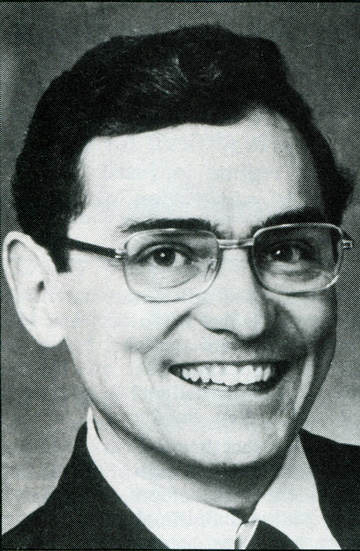The views expressed in our content reflect individual perspectives and do not represent the authoritative views of the Baha'i Faith.
Have you ever had a soul-killing job, one where your work seemed meaningless and unrewarding?
My husband and I watched a documentary the other night about the ways that modern society creates “meaningless work,” which prompted me to look up some recent statistics on how fulfilled people are at work, or not. Gallup conducts a poll about twice a year on employee engagement and, as of May 2017, about one-third of employees (in the U.S. at least) are “involved in, enthusiastic about and committed to their work and workplace.” That’s not a bad number, but it did make me wonder what that says about the remaining two-thirds.
The documentary referenced some research by Dr. David Graeber, a professor at the London School of Economics, who claimed that capitalist systems have created a huge number of pointless, paper-pushing jobs. I didn’t necessarily agree with all of his arguments, but his comment about the soul-killing nature of such work captured my attention:
Huge swaths of people, in Europe and North America in particular, spend their entire working lives performing tasks they secretly believe do not really need to be performed. The moral and spiritual damage that comes from this situation is profound. It is a scar across our collective soul. Yet virtually no one talks about it.
I think most of us want to use our unique talents and abilities to make a positive difference in the world. There is a great joy in knowing that you’re making a difference, and, as the Baha’i teachings state, we, as a human race, all aim for transcendence. However, when that aim becomes frustrated–or that potential becomes blocked–it can have damaging and dysfunctional repercussions on individuals, organizations and societies.
Having had a couple of soul-killing jobs myself, I can attest to the resulting anxiety and depression. What a waste of potential that represents–for all of us.
Clearly, we don’t live in a perfect world. Many have to work in less than ideal jobs to put food on the table. Sometimes, hopefully for short periods of time, one may have to bear a toxic work environment. Maybe we need to have bad experiences to gain greater clarity on what we don’t want. Maybe all the character-building tests with mean colleagues or supervisors are the point. But, in thinking about paving the way for a future where people are more fulfilled at work, what might that look like from a Baha’i perspective?
I believe that most Baha’is would assert that this search needs to start with one’s deep reflection and meditation on what it means to become one’s true self. In a tablet called Words of Wisdom, Baha’u’llah wrote: “True loss is for him whose days have been spent in utter ignorance of his self.” – Tablets of Baha’u’llah, p. 156.
Incidentally, discovering one’s true self is not necessarily a particular job description. I think it’s “bigger picture” than that. Find your true self means determining our relationship to the divine, and uncovering the unique gifts we can bring to the world. If we think of our professions in these more expansive terms, it can help us to find our paths or at least be more open to different possibilities.

Dan Jordan
I was privileged to attend a seminar recently on the life of Daniel Jordan. He was a leader in the American Baha’i community in the 1960’s and 1970s, plus a well-regarded scholar in educational development. A lot of his life’s work focused on unearthing human potential. To become one’s true self, he felt, meant developing “one’s knowing and loving capacities in service to mankind.” Our work can be most fulfilling, in other words, when service to others becomes its central focus. Work performed in the spirit of service, notes the Baha’i writings, is an act of worship.
In this context, we may need to ask ourselves tough questions about whether our work contributes to the advancement of civilization. Is the work you do, for example, building up or destroying, fostering unity or disunity, healing or harming others? Lest you think this is too simplistic, there are whole industries devoted to the latter. Our lives are too short and too precious to waste our talents along these harmful and destructive paths.
Baha’u’llah summarizes these points in this beautiful passage:
… man should know his own self and recognize that which leadeth unto loftiness or lowliness, glory or abasement, wealth or poverty. Having attained the stage of fulfillment and reached his maturity, man standeth in need of wealth, and such wealth as he acquireth through crafts or professions is commendable and praiseworthy in the estimation of men of wisdom, and especially in the eyes of servants who dedicate themselves to the education of the world and to the edification of its peoples. They are, in truth, cup-bearers of the life-giving water of knowledge and guides unto the ideal way. They direct the peoples of the world to the straight path and acquaint them with that which is conducive to human upliftment and exaltation. – Ibid., p. 34.
You May Also Like
Comments

















I also remember Dan Jordan well, NSA member, progenitor of a series of deepening books such as "The Dynamic Force of Example," and "Knowledge, Volition and Action," all based on understanding one's true self and potential. It was nice to recall his contributions to Baha'i lore.